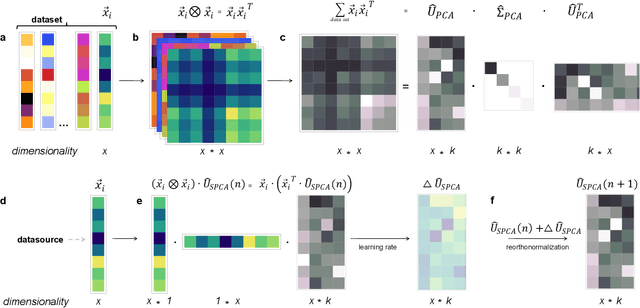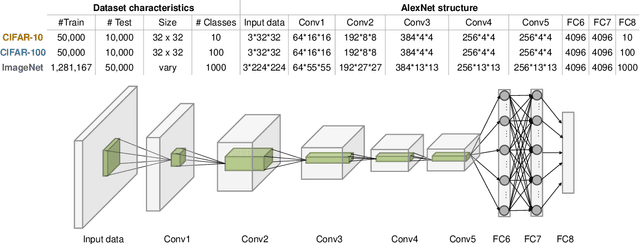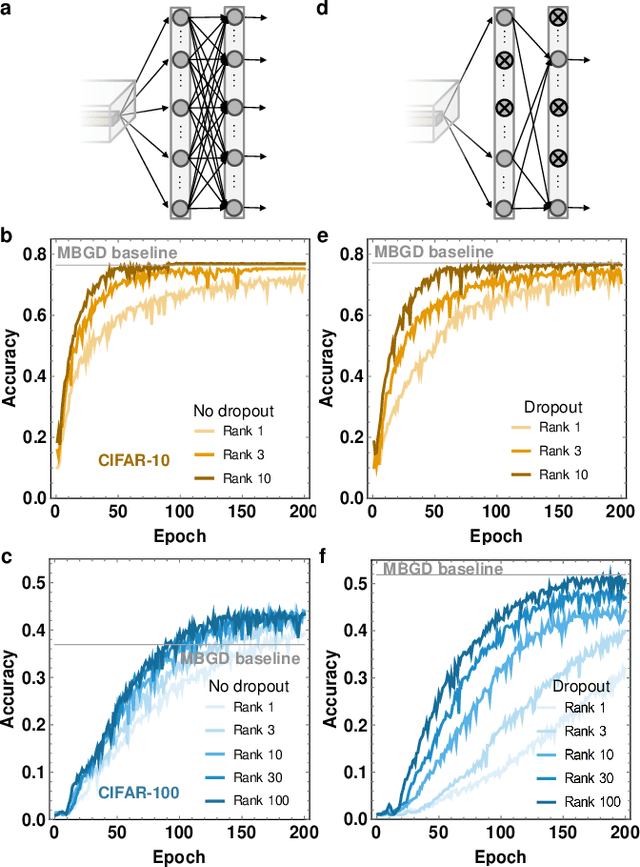Memory-efficient training with streaming dimensionality reduction
Paper and Code
Apr 25, 2020



The movement of large quantities of data during the training of a Deep Neural Network presents immense challenges for machine learning workloads. To minimize this overhead, especially on the movement and calculation of gradient information, we introduce streaming batch principal component analysis as an update algorithm. Streaming batch principal component analysis uses stochastic power iterations to generate a stochastic k-rank approximation of the network gradient. We demonstrate that the low rank updates produced by streaming batch principal component analysis can effectively train convolutional neural networks on a variety of common datasets, with performance comparable to standard mini batch gradient descent. These results can lead to both improvements in the design of application specific integrated circuits for deep learning and in the speed of synchronization of machine learning models trained with data parallelism.
 Add to Chrome
Add to Chrome Add to Firefox
Add to Firefox Add to Edge
Add to Edge